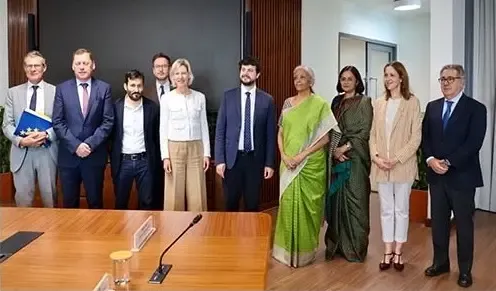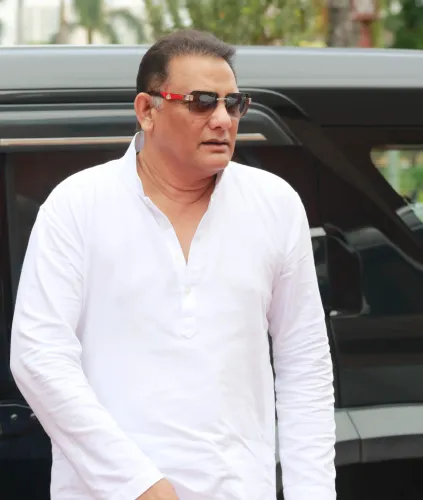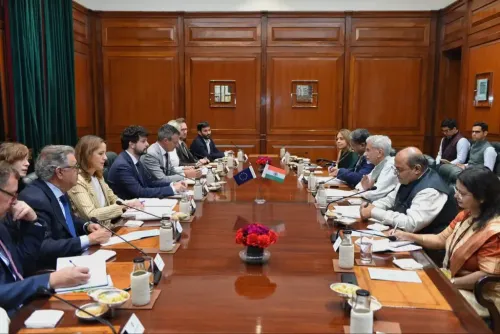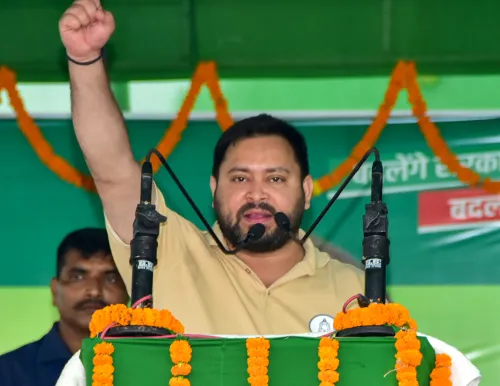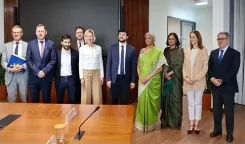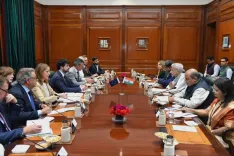How is Maharashtra CM Coordinating for New Medical Colleges?
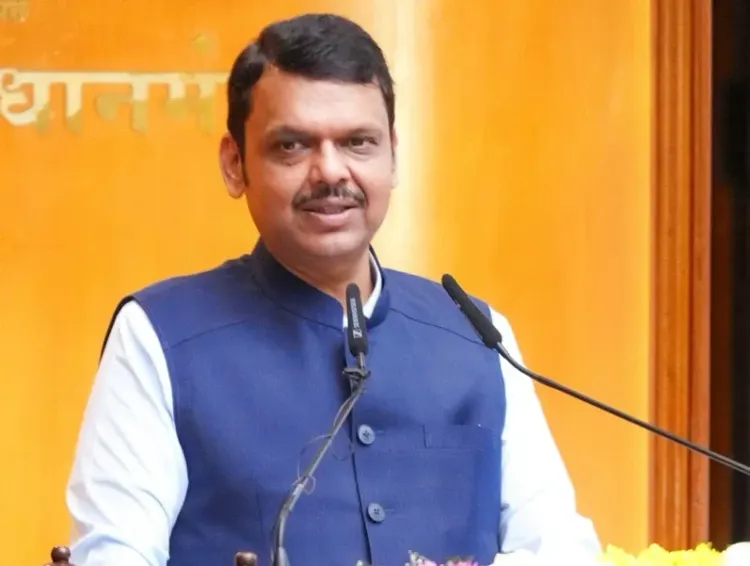
Synopsis
Key Takeaways
- Coordination among departments is crucial for the timely establishment of new medical colleges.
- Land availability should be prioritized to facilitate construction.
- Local representatives play a vital role in site selection.
- A time-sensitive plan is essential for project completion.
- Additional funding is required to enhance facilities in existing medical colleges.
Mumbai, July 9 (NationPress) Maharashtra's Chief Minister Devendra Fadnavis has urged relevant departments to collaborate effectively to facilitate the establishment of new medical colleges in Washim, Bhandara, Ambernath, and Palghar.
The CM emphasized that land acquisition should be prioritized. He conveyed these directives during a meeting convened to evaluate the available space and the ongoing construction status of medical colleges and hospitals.
According to the Chief Minister, the government has sanctioned the development of new government medical colleges in Washim, Bhandara, Ambernath, and Palghar. Local representatives and district officials are tasked with inspecting potential sites and making selections.
A detailed, time-sensitive plan is to be formulated for appointing consultancy firms to oversee these projects, ensuring that all related tasks are completed punctually. The local administration must guarantee that there are no delays in the execution of any work.
He noted that construction is progressing on government medical colleges designed for 100 students and 430-bed hospitals in regions including Sindhudurg, Jalna, Amravati, Washim, Wardha, Buldhana, Gadchiroli, Parbhani, and Hingoli. Additional funding is necessary to enhance facilities within these colleges. The Public Works Department has been tasked with submitting a revised comprehensive proposal to a high-level committee, adhering to the regulations set by the National Medical Commission.
In other news, Education Minister Dadaji Bhuse informed the state assembly that admissions will be revoked if it's discovered that forged documents were used for enrollment in private schools under the Right of Children to Free and Compulsory Education (RTE) Act. This statement was made in response to inquiries from Sanjay Gaikwad and Namita Mundada during a calling attention motion.
“The RTE Act mandates that 25% of seats in private and unaided schools be reserved for students from economically weaker and disadvantaged backgrounds. Eligible students are admitted from the first day of the academic year, provided their parents' annual income does not exceed Rs 1 lakh. Once admission is granted, transferring schools is not permitted,” stated Minister Bhuse.
He further mentioned that complaints have surfaced regarding certain schools conducting separate classes for RTE-admitted students, and strict measures will be implemented following a thorough investigation of the issue.

